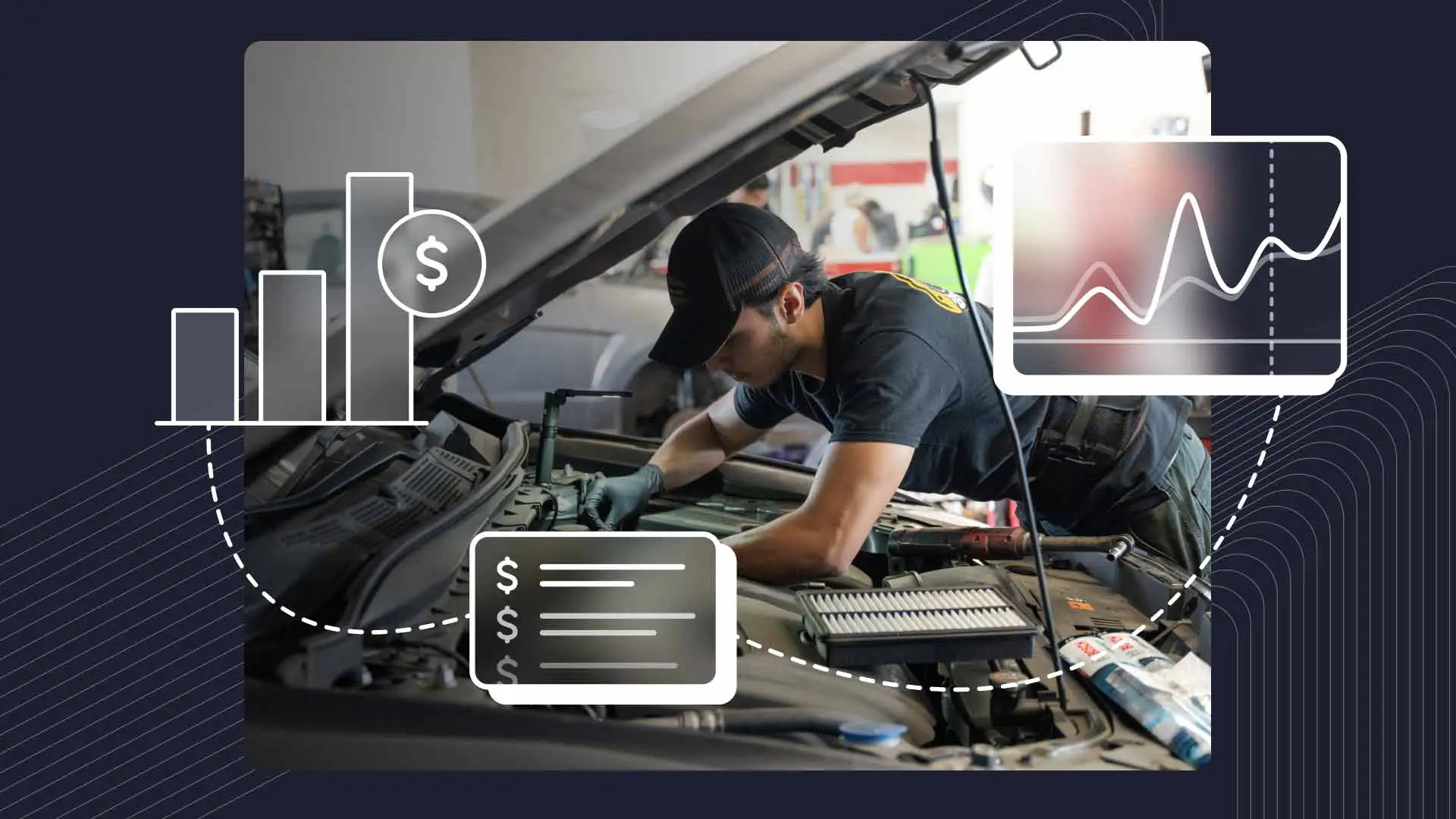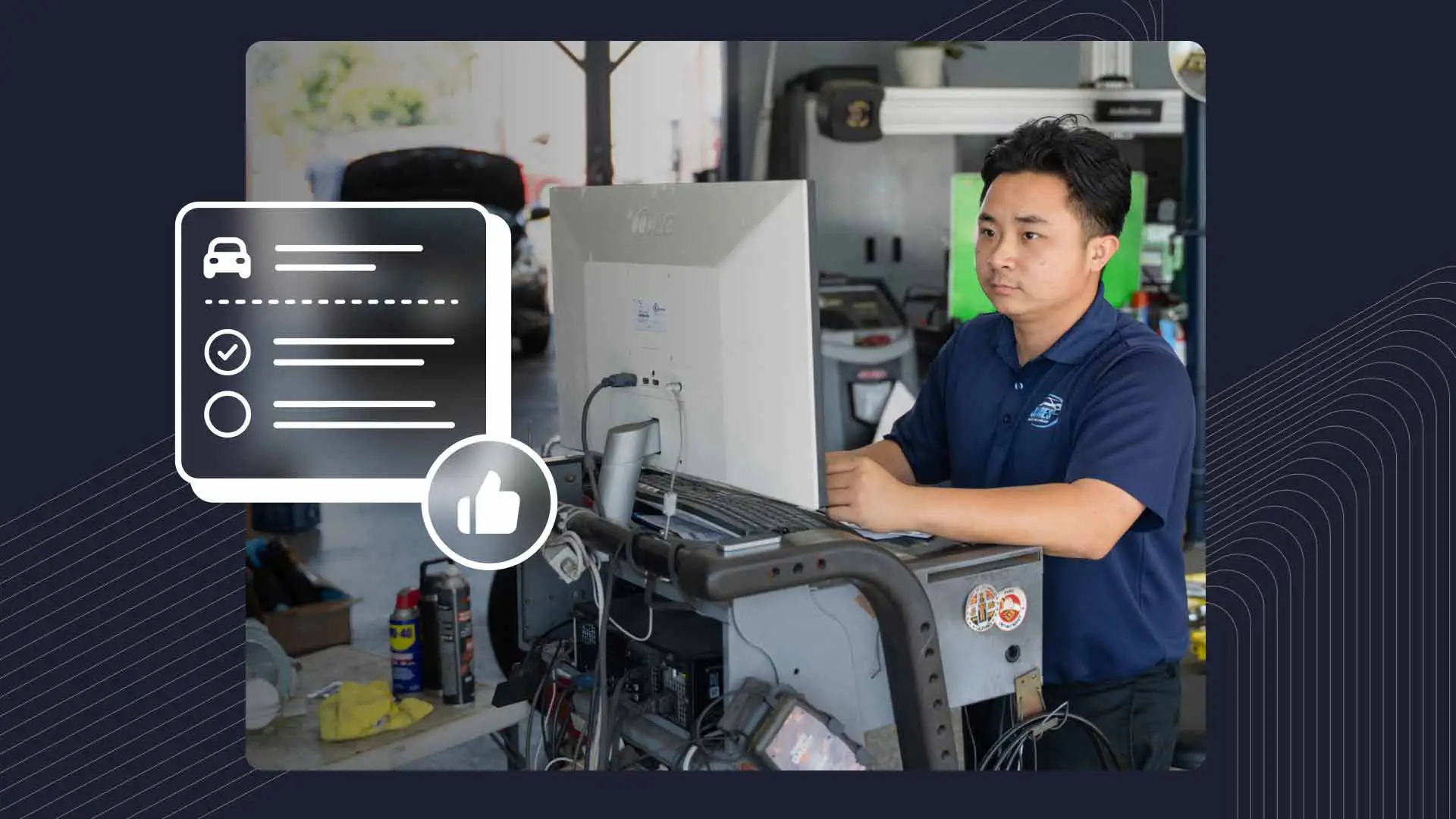In so many ways, today’s engines are better mousetraps. They’re more powerful and efficient thanks to direct injection, turbocharging, and variable valve timing. Plus, stronger materials and superior lubrication make them more durable than ever before. Not to mention the added safety and convenience of drive-by-wire systems and driver assistance technology, among other innovations.
But even with all these advancements, there’s one problem that still plagues modern engines: carbon deposits. These stubborn buildups can cause serious issues for a car’s performance, fuel economy, and emissions; and, if they’re not addressed in short order, they can lead to some pretty expensive repairs.
For oil change shops and service centers, tackling carbon deposits is a great way to grow your services while offering a nice value-add for customers. Let’s take a closer look at why carbon cleaning can be a key addition to your service menu–one that improves both engine performance and your shop’s bottom line.
What are Carbon Deposits?
Carbon deposits are just what they sound like: hardened carbon particles that stick to various engine parts. What causes carbon buildup in engines? It’s usually a combination of incomplete combustion, oil breakdown (vapors), and the additives found in modern fuels. The result is a lingering residue that attaches itself to intake valves, pistons, fuel injectors, and combustion chambers. They come in different forms, too, whether it’s hard deposits that look like crusty buildup; the fine, black soot that’s common in diesel engines; or a thick, gooey sludge that slows down oil circulation.
Impact on Engine Performance
Sooner or later, carbon deposits are going to cause problems. First, they make the combustion process less efficient by forcing the engine to burn more fuel. The buildup of carbon can also block the flow of air and throw off fuel delivery, which starves the engine so it produces less power. On top of that, more fuel left over from combustion means more harmful emissions are created. Plus, deposits on spark plugs or valves can cause misfires or rough idling. And finally, too much carbon buildup can damage the catalytic converter, leading to expensive repairs or replacement.
Why Modern Engines are So Vulnerable
While modern engines are impressive, they’re also more prone to carbon buildup. Direct injection engines, for example, spray fuel straight into the combustion chamber, and without fuel washing over the intake valves deposits tend to build up faster. While turbochargers and superchargers improve performance, they also run under high heat and pressure, which accelerates the formation of deposits. Even exhaust gas recirculation (EGR) systems, which are designed to cut emissions, can backfire by bringing carbon-rich exhaust gases back into the engine, increasing the risk of buildup.
Prevention Strategies
High-Quality Fuels & Additives
Many premium fuels have detergents in them that clean the engine as it runs. Another alternative is fuel additives–especially those with the compound PEA (polyetheramine)–which can help dissolve and prevent deposits. Some additives are also designed to improve the combustion process, reducing the amount of unburned fuel that can contribute to carbon buildup.
Regular Oil Changes
Remember, oil breakdown is a major cause of sludge and deposits, so sticking to recommended oil change schedules and using high-quality oil are good rules of thumb. This is where synthetics earn their stripes, since they offer much better heat resistance and break down far less easily than conventional oils.
Driving Habits
How a car is driven can actually affect the formation of deposits, too. Standing on the accelerator from time to time (when it’s safe, and provided there isn’t a police cruiser in the next lane) helps burn off deposits. For vehicles that take frequent short trips or idle a lot, this is especially important.
Routine Maintenance
Regular inspections and maintenance checks can also help get deposits under control early. These include everything from cleaning air filters to checking spark plugs to inspecting the fuel injectors for signs of buildup–simple steps that can prevent bigger problems later on.
Professional Service Offerings
Carbon Cleaning Services
When preventive measures aren’t enough, it’s time to look at how to get rid of carbon buildup in the engine. Some of the most effective methods include:
Walnut Shell Blasting: This process cleans the carbon buildup on intake valves and other parts using a high-pressure air blast of finely crushed walnut shells. It’s highly effective, not terribly invasive, and relatively easy on the environment. However, it does require specialized equipment and training. And, it can be more expensive than other solutions.
Chemical Cleaning: Different chemical cleaning methods can help clear out carbon deposits. Engine flushes remove sludge from the oil system, while fuel system cleaners break down deposits in the injectors and combustion chambers. Just make sure you’re using manufacturer-approved products and solvents to avoid damaging critical engine parts.
Intake Valve Cleaning: Direct injection engines often need a little more extra care to tackle carbon deposits on valves. Tools like borescopes and specialized cleaning agents are designed for this type of work, making it easier to safely and effectively remove buildup.
Turbocharger Cleaning: Turbochargers deliver a great performance boost, but they also run at very high temperatures, making them especially susceptible to carbon buildup. These components usually respond well to chemical treatments and manual cleaning, although again, you need to use the right tools and know what you’re doing.
The Case For Carbon Cleaning
Carbon deposits are a persistent problem for modern engines, but they also offer oil change shops a chance to add new services and improve vehicle performance. By offering preventive maintenance and cleaning, you can effectively strengthen customer relationships while growing the bottom line.
Start by educating customers on the risks of carbon deposits and the benefits of professional cleaning. A well-trained team, the right tools and equipment, and competitive pricing–along with bundling or discounts for regular customers–can set your shop apart from the competition.
Keep your business running as smoothly as your customers’ engines with Shopmonkey’s best-in-class oil change software for quick lube and auto repair shops. Request a demo today to experience the difference!




